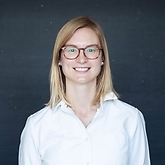May 22, 2019 | News | Workshop Announcement
Migration data and models for a better world: Perspectives from social scientists, data scientists and international organizations
The Max Planck Institute for Demographic Research (MPIDR) and the International Union for the Scientific Study of Population (IUSSP) organizes a workshop on migration data and models, at the annual meeting of the American Sociological Association in New York City on August 9th, 2019, 1-5pm.

© iStockphoto.com / AndreyPopov
Migration plays a central role in population processes, becoming an increasingly important component of social, economic and political change across the globe. Given its often unjust causes and socially transformative consequences to origin and destination communities alike, migration continues to demand the scholarly attention of sociologists, especially those invested in overcoming social injustices. However, despite the growing importance of migration phenomena, migration data remain expensive and difficult to collect. Different institutions use different definitions to meet their various needs, and time after time difficulties in comparing data across context limit wider understanding.
The goal of this preconference is to facilitate a conversation about improving migration data by bringing sociologists familiar with the conceptual pitfalls of migration research together with two groups: (1) data scientists with strategies for inferring migration from new forms of digital data and (2) representatives from international organizations with specific needs for particular kinds of migration estimates.
This interdisciplinary conversation will be organized around three substantive issues in migration data and measurement. First, there is a need for data than can improve the lives of migrants. Understanding the conditions migrants face is a key priority of the UN’s Global Compact on Migration. Second, there is a need to better understand the uses of migration data by governments and the salience of migration data to the public. Preventing distorted views that may lead to unjust immigration restrictions or violence against migrants requires research into how data are interpreted and shared. Third, there is a need for comprehensive tools for comparing different kinds of migration data. Sociologists, in particular, can help international organizations and data scientists decide how to prioritize the types of data that are most useful to understand societal processes and migration.
ASA 2019 Pre-conference Workshop
New York City, New York Hilton, Floor: Second Floor, Murray Hill West
August 9, 2019 — 1 pm to 5 pm
Migration Data and Models for a Better World: Perspectives from Academia, Data Science, and International Organizations
1:00 — 1:15 Introductions
1:15 — 2:45 Panel 1 - New Advances in Migration Data & Modeling
Chair: Lee Fiorio
Combining Facebook and Traditional Survey Data to Predict Migrant
Stocks
Monica Alexander
Migration using Twitter Data: Possibilities and Challenges
Kiran Garimella
Network Sampling Approaches to Recruit Samples of Rare Populations
of Migrants
M. Giovanna Merli
Modeling the biases of digital data: An illustration using Twitter
and ACS data on predicting migration flows in the US
Yuan Hsiao
2:45 — 3:15 Break
3:15 — 4:45 Panel 2 - Making a Better World with Migration Data
Chair: Yuan Hsiao
How Higher Resolution Migration Measures Might Improve Knowledge
About Individual Behavior and Provide Insights for a Better World
Sara Curran
Who are the “Immigrants”? Diversity, Immigration, and Public Opinion
René Flores
International Migration Data Availability, Gaps and Prospects:
Perspectives for International Population Estimations and Projections
Patrick Gerland
Mobilities and Immobilities: Reconsidering Migration with Social Media
and Administrative Data
Lee Fiorio
4:45 — 5:00 Closing remarks
Organizing Committee
Yuan Hsiao

© Photo: Ya-Wen Chiu
PhD Student of Sociology, University of Washington, Seattle, U.S.A.
Yuan Hsiao is a Ph.D. candidate in Sociology and a Master’s student in Statistics at the University of Washington (UW). Hsiao’s research concerns the intersection of digital media, statistical methods, and social processes, and has published or accepted in Social Networks, New Media & Society and Information, Communication & Society, among other outlets. His major research lies in two areas: (1) Can we combine digital data and official statistics to better estimate migration rates (2) How can we understand the mechanisms in which digital media enable or disable collective behavior. He is particularly interested in collecting original data from digital traces, surveys, or interviews to understand how digital media can serve as both a source of data and an explanation for social processes such as migration or political behavior. He applies methods of network analyses, spatial models, or structural equation modeling to address the research questions, and has been awarded the UW Graduate School Distinguished Thesis Award, the UW Sociology Herbert Costner best solo-author paper Award, and the UW Population Health Travel Award. His goal is to find innovative combinations of theory, data, and methods to understand the role of digital media.
Lee Fiorio
Ph.D. Student of Geography, Graduate Fellow at the Center for Studies in Demography and Ecology, University of Washington, Seattle, U.S.A.
Lee Fiorio is a Ph.D. candidate in geography at the University of Washington and a graduate research fellow at the Center for Studies in Demography and Ecology. His primary research agenda is to use computational and statistical methods to bring together demographic and geographic perspectives on migration and urban development. Lee Fiorio has a keen interest in developing methods that use large datasets from social media and other sources to achieve new understandings of population processes. Most of his research deals with measuring flows of people at multiple scales with the goal of studying migration systems and their relationship to social inequality. Lee Fiorio has published in journals such as Urban Geography and the Journal of Population Research as well as in the Association of Computing Machinery WebSci conference proceedings.

© MPIDR
Director, Max Planck Institute for Demographic Research, Rostock, Germany
Emilio Zagheni (PhD in Demography, UC Berkeley 2010; MA in Statistics, UC Berkeley 2008) is Director of the Max Planck Institute for Demographic Research in Rostock, Germany and Affiliate Associate Professor of Sociology at the University of Washington, Seattle. Zagheni is a demographer who uses mathematical, statistical and computationally-intensive approaches to study the causes and consequences of population dynamics. Motivated by the ambition to improve people's lives through the scientific study of our societies, he is consolidating a portfolio that leverages interdisciplinary approaches to monitor demographic change, to explain population processes, and to predict future demographic outcomes. He is best known for his pioneering work on using Web and social media data for studying migration processes. In 2016, he received the Trailblazer Award from the European Association for Population Studies for his pivotal role in developing the field of Digital and Computational Demography. Emilio Zagheni has published in top journals in Demography (e.g. Demography, Population and Development Review, Population Research and Policy Review) and Statistics (e.g., Journal of the American Statistical Association, Biostatistics) as well as in ACM (Association of Computing Machinery) conference proceedings (e.g., WebSci, WWW, WSDM). He co-chairs the IUSSP (International Union for the Scientific Study of Population) Panel on Digital Demography.
Confirmed Speakers

© Dee Keilholz, University of Toronto
Monica Alexander is an Assistant Professor in Statistical Sciences and Sociology at the University of Toronto. Her research focuses on developing statistical methods to help measure demographic and health outcomes. She received a PhD in Demography and Masters in Statistics from the University of California, Berkeley. Prior to that she received a Masters of Social Research from the ANU and a Bachelor of Science at the University of Tasmania. She has worked on research projects with organizations such as UNICEF, the World Health Organization, the Bill and Melinda Gates Foundation, and the Human Mortality Database.

© Susan R. Curran, Claire Curran
Sara R. Curran joined the faculty of the University of Washington‘s Henry M. Jackson School of International Studies and the Daniel J. Evans School of Public Policy & Governance in 2005. She is Professor of International Studies, Professor of Sociology, and Professor of Public Policy & Governance. She is also an Adjunct Professor of Global Health, affiliate faculty of the Center for Global Studies, the Southeast Asian Center. the Technology and Social Change Group (TASCHA), and EarthLab. She holds degrees from the Univ. of Michigan (B.S., Natural Resource Management), North Carolina State Univ. (M.S., Sociology and Economics), and the Univ. of North Carolina at Chapel Hill (Ph.D., Sociology). Currently, she serves as director of the UW’s Center for Studies in Demography & Ecology.
She researches gender, migration, and environment in many contexts around the globe. Current projects include: 1) social change and migration dynamics, 2) climate change, natural disasters, and population change, 3) several projects related to applied research and training, and 4) global studies research. She has authored work that appears in ANNALS of the American Academy of Political and Social Sciences, Demography, Population and Development Review, Social Science Research, Social Forces, Teaching Sociology, Journal of International Women’s Studies, Ambio, Population & Environment, and Journal of Marriage and the Family.
René D. Flores is the Neubauer Family Assistant Professor of Sociology at the University of Chicago. Flores’ research interests are in the fields of international migration, race and ethnicity, and social stratification. His research explores the emergence of social boundaries around immigrants and racial minorities across the world as well as how these boundaries contribute to the reproduction of ethnic-based social inequality.
His work has appeared in American Journal of Sociology, American Sociological Review, Social Forces, and Social Problems, among others. His research has been supported by the National Science Foundation, the Robert Wood Johnson Foundation, the Paul and Daisy Soros Foundation, the Social Science Research Council, the American Sociological Association, the Paul Merage Foundation, and others.
Flores received his Ph.D. in Sociology and Social Policy from Princeton University in 2014. Flores earned a B.A. in Interdisciplinary Studies from the University of California, Berkeley. Most recently, he was the Donald D. Harrington Faculty Fellow at the Population Research Center at University of Texas at Austin. He has also served on the faculty of the Department of Sociology in the University of Washington.

© Kiran Garimella
Kiran Garimella is a postdoc at the Institute for Data, Systems and Society (IDSS) at MIT. Before joining MIT, he was a postdoc at EPFL, Switzerland. His research focuses on using digital data for social good, including areas like polarization, misinformation and human migration. His work on studying and mitigating polarization on social media won the best student paper awards at WSDM 2017 and WebScience 2017. Kiran received his PhD at Aalto University, Finland, and Masters & Bachelors from IIIT Hyderabad, India. Prior to his PhD, he worked as a Research Engineer at Yahoo Research, Barcelona, and at the Qatar Computing Research Institute (QCRI), Doha.
Patrick Gerland, Chief, Population Estimates and Projections section, Population Division, Department of Economic and Social Affairs (DESA), a national of France, has over 25 years of work experience with the United Nations. In his current position, he oversees in the Population Division the preparation of the World Population Prospects, and the preparation of technical and substantive reports on population estimation and projection.
Patrick first worked in the UN Statistics Division on international demographic statistics, data collection/management/analysis and IT/GIS capacity-building in developing countries, and for the past decade in the UN Population Division as analyst with increasing responsibilities and contributions to population estimates and projections, database and IT development, and methodological research. During this time, he provided technical training and assistance to population data-related projects in over 30 countries in Africa and Asia; collaborated in numerous inter-agency substantive and methodological expert groups; and has been collaborating with several academic research groups to develop new state-of-the-art statistical methods to incorporate uncertainty in demographic modeling, population reconstruction and probabilistic projections relevant to the UN work, and to improve existing methods and empirical datasets to measure child, adult and old-age mortality.
Patrick holds a DESS d’expert démographe from the University of Paris (IDUP, Paris-I Pantheon-Sorbonne) and a PhD in Population Studies from Princeton University (Office of Population Research). Over the years, he (co)authored over 55 publications/papers, and serves as referee for various demographic and public health journals. He was the chair from 2015-2018 and a member since 2019 of the IUSSP Scientific Panel on Innovations for Strengthening Civil Registration and Vital Statistical Systems, and participates in the scientific advisory committees of the French National Demographic Institute, an EU project on Demography Statistics for Africa (DemoStaf), and GAVI Vaccine Impact Modelling Consortium. For further info, see: http://www.researchgate.net/profile/Patrick_Gerland/

© Duke Photography
M. Giovanna Merli is Professor of Public Policy, Sociology and Global Health in the Sanford School of Public Policy, Duke University and the director of the Duke Population Research Center. She holds a BA in China Studies from the University of Venice, Italy, an MA in International Relations from the Johns Hopkins University School of Advanced International Studies (SAIS) and a Ph.D. in Demography from the University of Pennsylvania. A significant component of Dr. Merli’s research has been devoted to data collection: the design of surveys of sexual behavior and sexual networks, the conduct and evaluation of innovative network-based sampling approaches to recruit samples of hidden populations at risk of HIV/STDs and of rare populations of immigrants to the U.S., Europe and Sub-Saharan Africa and the implications of the political and social context of data collection for the validity of the information collected in social surveys.
Contact and Registrations
Those who are interested in attending the workshop must register using the registration page for the conference via the ASA membership portal. For questions, comments, or suggestions please contact Yuan Hsiao (yahsiao@uw.edu)